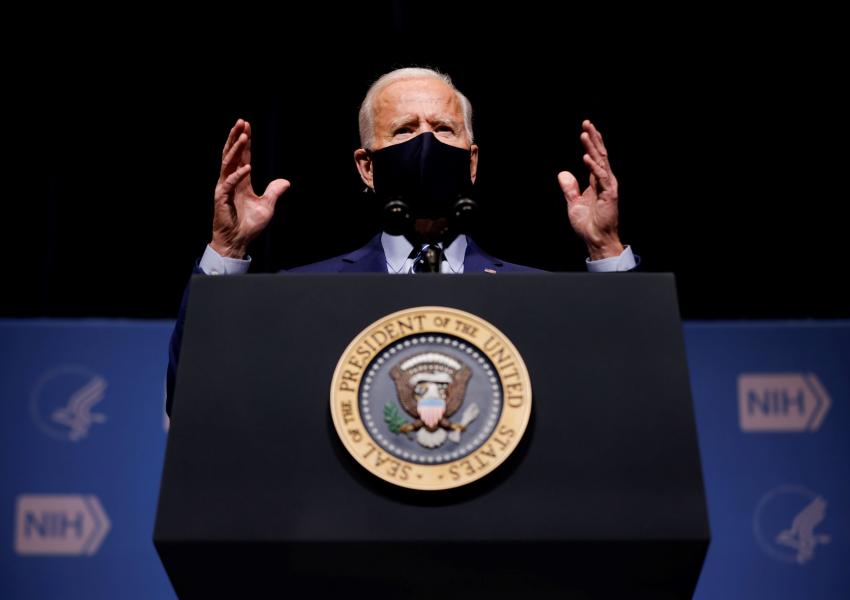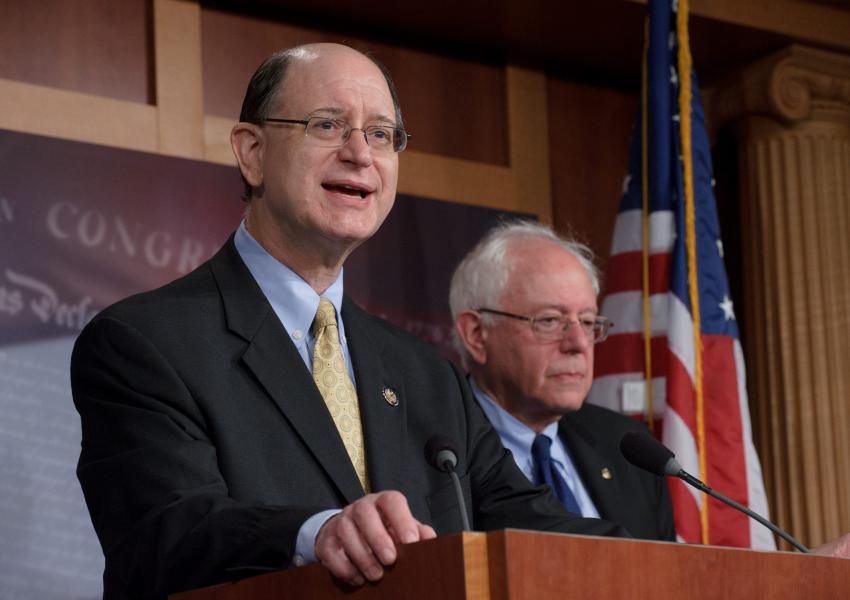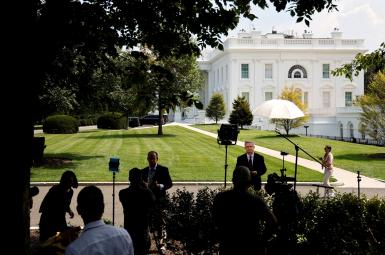
More Than 100 US Lawmakers Pressure Biden For Tougher Stance On Iran
With the Biden administration deliberating its options regarding diplomacy with Iran and the possible return to the Obama-era nuclear accord with Iran, US lawmakers of both parties are making their voices heard and trying to influence the administration in its Iran policies.
This week, two initiatives were pursued by members of the House of Representatives demanding a tough stance by the Biden team regarding Iran.
One was a letter signed by 120 Republican Representatives on February 8 to persuade the administration not to quickly return to the Joint Comprehensive Plan of Action (JCPOA), as the nuclear deal is called, “without first pursuing any changes” and not allowing “history to repeat itself with a fatally flawed Iran nuclear deal.”
The second bi-partisan initiative is the introduction of a resolution on February 11 by more than 112 House members supporting a democratic, secular Iran and calling for measures against the Islamic Republic’s “terror” plots. This resolution surfaced after an Iranian diplomat based in Austria was convicted by a court in Belgium on February 4, for organizing a plot to bomb an opposition rally in France in 2018.
The letter by 129 Republican lawmakers to President Joe Biden said, “For a variety of reasons that include the expiring sunset clauses and a flawed verification agreement,” a straightforward return to the JCPOA “would be a strategic US foreign policy blunder, exponentially more dangerous than the consequences of the original misguided approach.” A group of 52 Republican House members also sent a letter to President Biden in early February arguing that his predecessors 'maximum pressure' policy toward Iran was effective and should continue.

Rep. Brad Sherman, D-Calif.
The signatories in their letter argue that the verification aspect of the nuclear deal has remained murky and “Worst of all, the verification agreement between Iran and the International Atomic Energy Agency (IAEA) remains a great mystery to this day and still hasn’t been submitted to Congress.” The letter also questions assertions that a return by both the United States and Iran to compliance with the JCPOA must be the starting point for further negotiations.
“That’s not an option. As the Director General of the IAEA, Rafael Grossi, pointed out late last year, there are too many breaches of this agreement to simply wish everything could just fall right back into place as is. Grossi made clear that going back to square one is impossible at this point, “because square one is no longer there,” the letter states.
The letter also criticizes support by House Democrats for the Biden administration’s declared intention to return to the JCPOA. It is not clear at this point if there are any Democratic dissenters, but when it comes to Iran’s human rights violations and accusations of its terror-related activities, many Democrats are ready to pressure the administration.
The US State Department reiterated this week that the administration is consulting with allies, partners and Congress to chart a unified position regarding Iran before launching any talks. It has also stated that the Biden team will not allow Iran to have nuclear weapons.
The resolution introduced on Thursday is a bi-partisan initiative demanding the administration to work with European allies to "hold Iran accountable for breaching diplomatic privileges" and to call on other countries to stop its "malign activities."
The leading co-sponsors of the resolution are Representatives Tom McClintock (R-Calif.), and Brad Sherman (D-Calif.). They also highlight the protest movements in Iran and the government’s harsh response, with killing hundreds of protesters and hanging a young wrestling champion arrested during protests in 2018.
The co-sponsors notified President Biden of the resolution in a letter, saying the United States "must remain firm in holding the Iranian government accountable for its nuclear and other destabilizing activities in the region; such as, its support for terrorism, development of ballistic missiles, and human rights violations."








